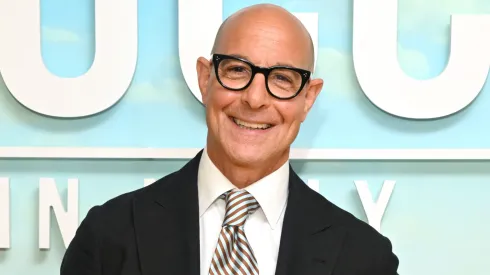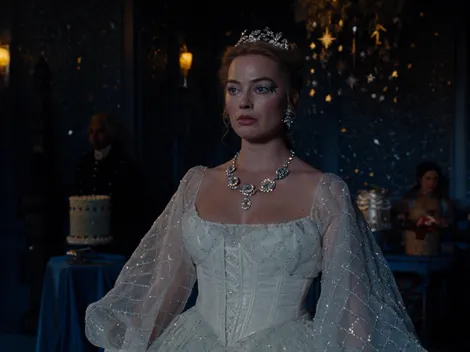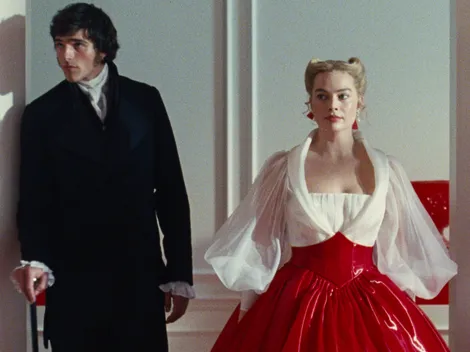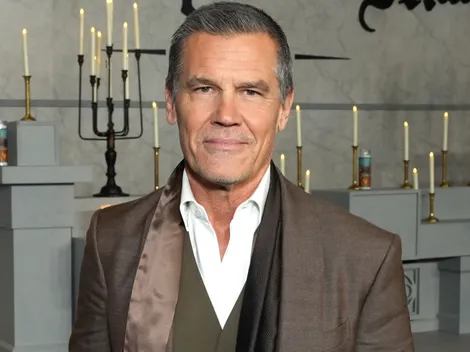The cinematic career of Stanley Tucci is less a straightforward line of roles and more a magnificent mosaic of human behavior, assembled with surgical precision and an undeniable warmth. Over four decades, this prolific character actor has consistently defied easy categorization, effortlessly pivoting from the silver-tongued fashion director to the soft-spoken predator.
He has become Hollywood’s quiet constant, the supporting player whose presence guarantees an elevation of the material, a reliable artisan whose craft is so complete it often outshines the spectacle around him. His filmography is a testament to an actor’s true measure: the chameleon-like ability to inhabit any corner of the human experience with authenticity.
Nigel Kipling in The Devil Wears Prada (2006)
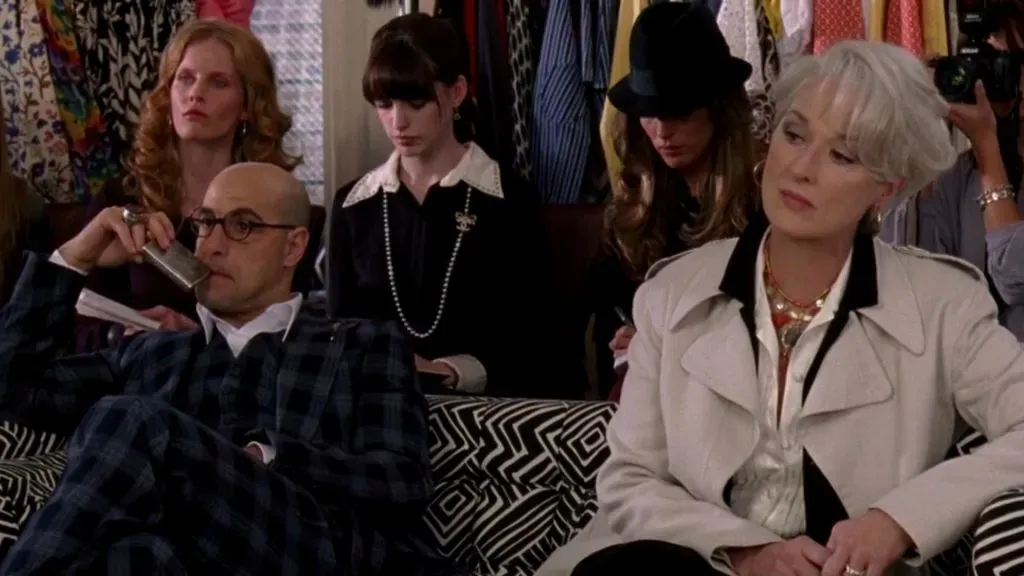
(Source: IMDb)
The quintessential Tucci performance, serving as the weary, witty anchor in the eye of Miranda Priestly’s fashion storm. Nigel is the perfect blend of acid-tongued mentor and emotionally bruised realist, a character who can deliver a cutting one-liner and a profound life lesson in the same breath. His portrayal is a masterclass in the value of the supporting role, stealing every scene with grace and genuine heart.
George Harvey in The Lovely Bones (2009)
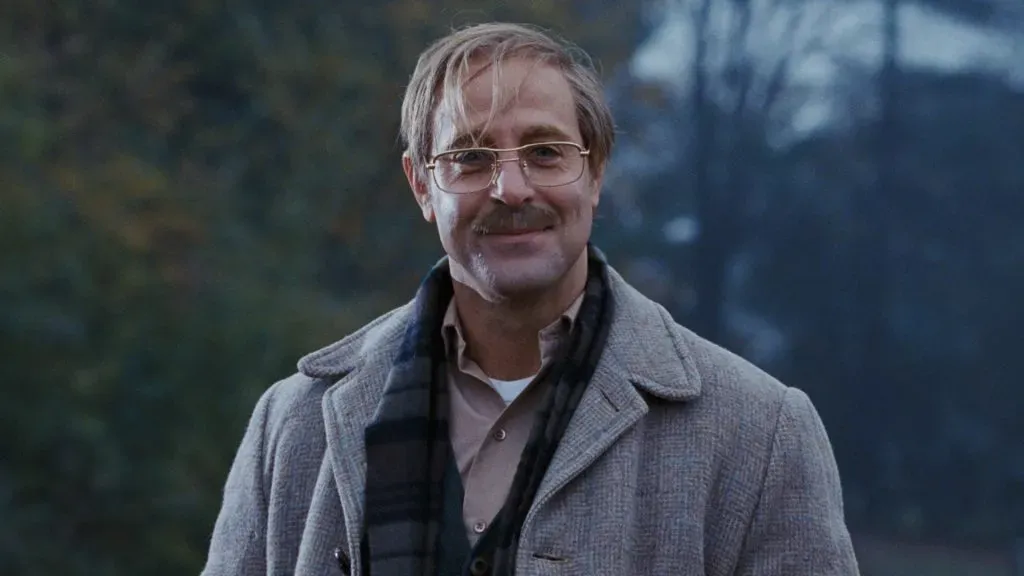
(Source: IMDb)
A chilling, transformative turn that earned him an Academy Award nomination. In this role, Tucci disappears entirely, shedding his typical charm to portray a chilling, soft-spoken predator. The genius of the performance lies in its subtlety—a terrifying stillness that makes the character’s mundane exterior far more unsettling than any overt villainy could have been, demonstrating his profound dramatic range.
Secondo in Big Night (1996)
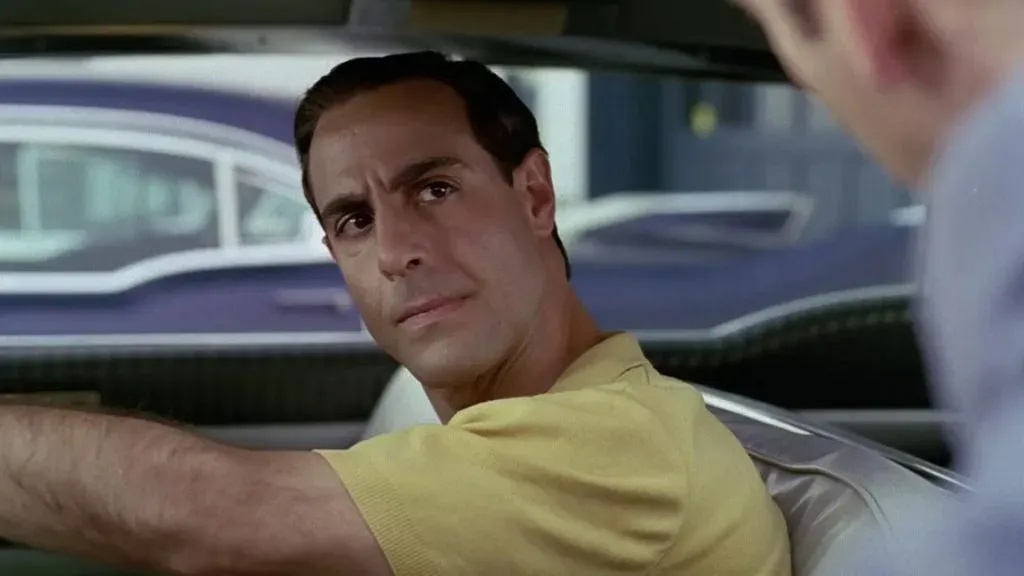
(Source: IMDb)
Co-written and co-directed by Tucci, this film is his cinematic manifesto. As Secondo, the ambitious, high-strung brother trying to save his struggling Italian restaurant, Tucci gives a performance rooted in passion, frustration, and old-world familial obligation. It is a deeply personal, human, and understated role that showcases his capacity for leading a story with intense, simmering authenticity.
Caesar Flickerman in The Hunger Games Series (2012–2015)
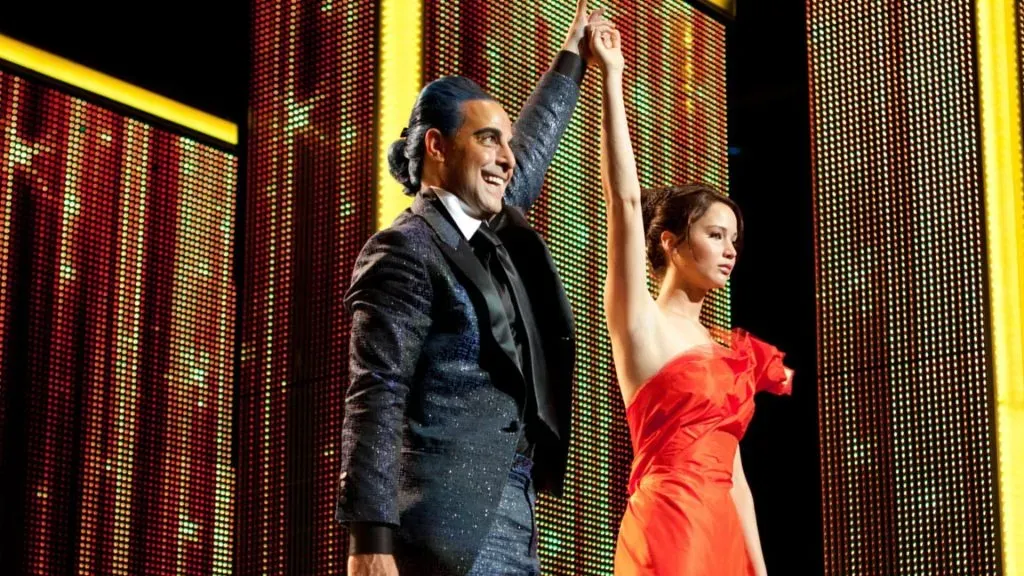
(Source: IMDb)
The embodiment of theatrical camp and dystopian spectacle. With his garishly colored hair, manic grin, and over-the-top wardrobe, Flickerman is a dazzling, synthetic ringmaster. Tucci perfectly captures the character’s unsettling blend of jovial showman and complicit agent of oppression, adding a vital layer of theatricality to the blockbuster franchise.
Paul Child in Julie & Julia (2009)
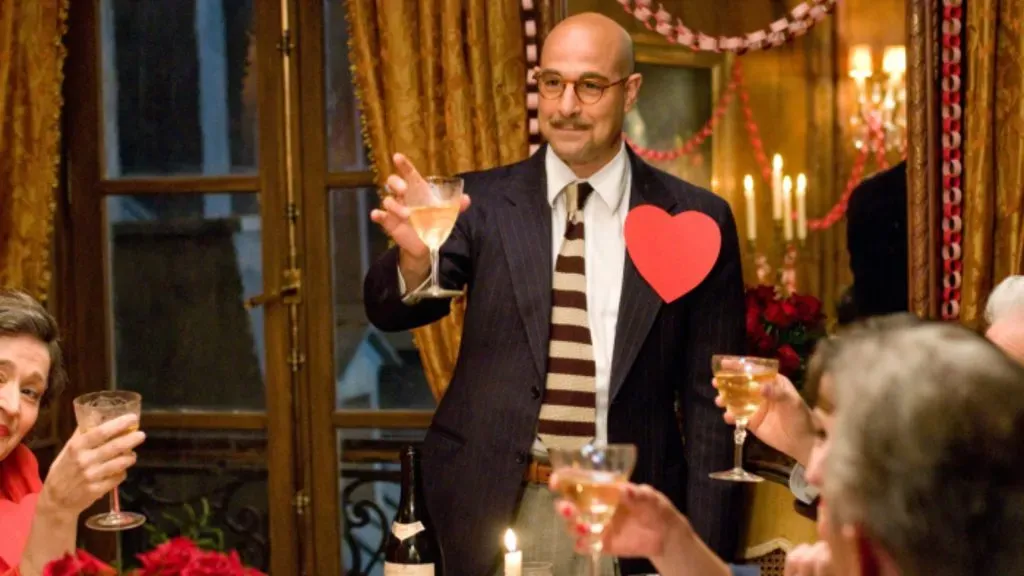
(Source: IMDb)
The ultimate portrait of a supportive, loving husband. Sharing the screen once again with Meryl Streep (Julia Child), Tucci crafts a Paul Child who is charming, patient, and completely smitten. His performance is a gentle, understated triumph, proving that immense tenderness and joy can be the most compelling and memorable transformation of all.
Mitchell Garabedian in Spotlight (2015)
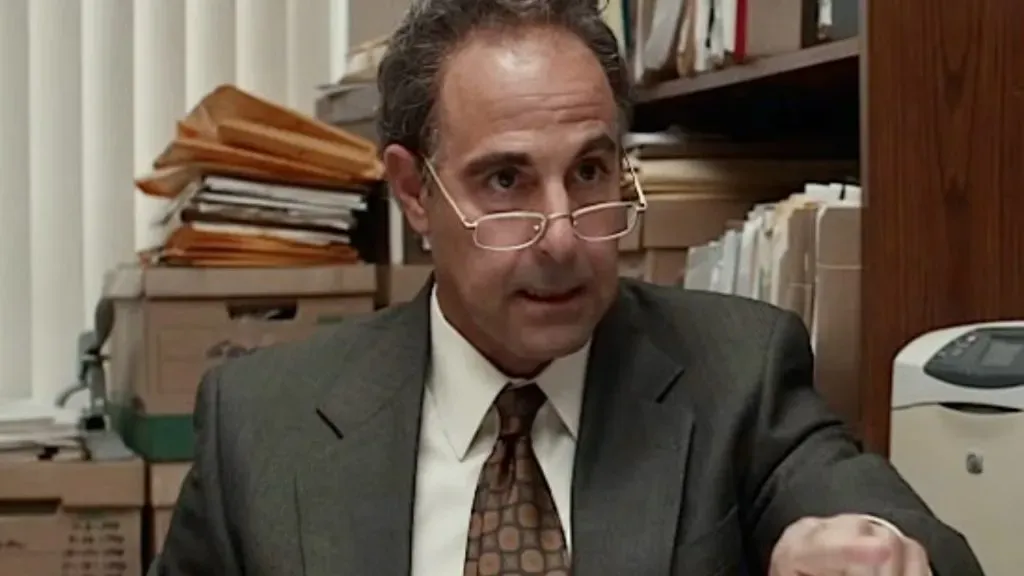
(Source: IMDb)
Playing the real-life Armenian-American lawyer who fought tirelessly for victims of clerical sexual abuse, Tucci is a force of righteous frustration. With a gravelly voice and a persistent, rumpled demeanor, he avoids the trap of melodrama, grounding the powerful true story in a fierce, unyielding sense of justice, a testament to his ability to inhabit historical seriousness.
Dr. Abraham Erskine in Captain America: The First Avenger (2011)
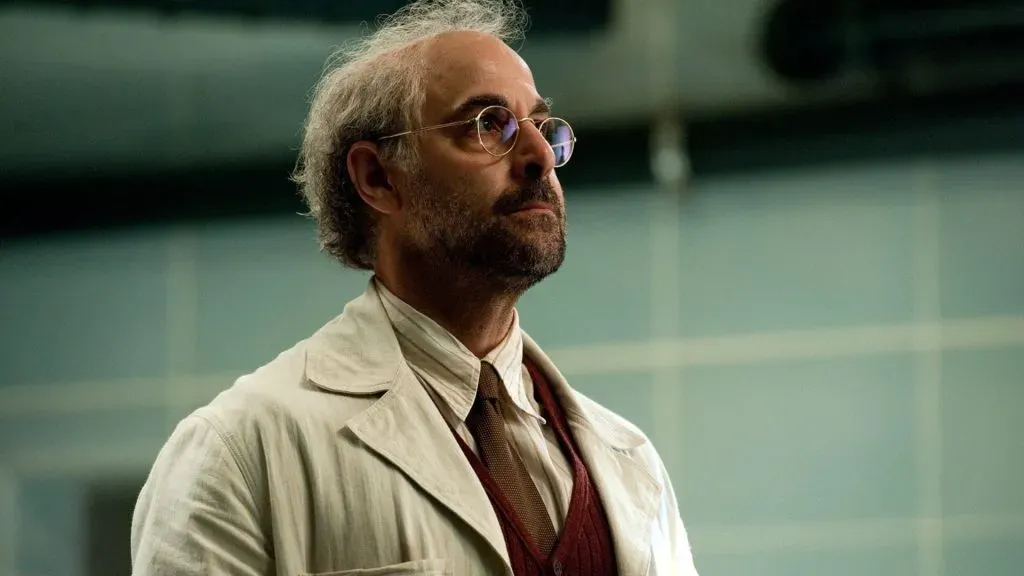
(Source: IMDb)
Though brief, his role as the German scientist who invents the Super Soldier Serum is one of the most resonant in the early Marvel Cinematic Universe. Dr. Erskine’s quiet dignity and profound moral conviction provide the foundational heart of Captain America’s origin story. It is a masterclass in making minimal screen time feel monumental and deeply meaningful.
Adolf Eichmann in Conspiracy (2001)
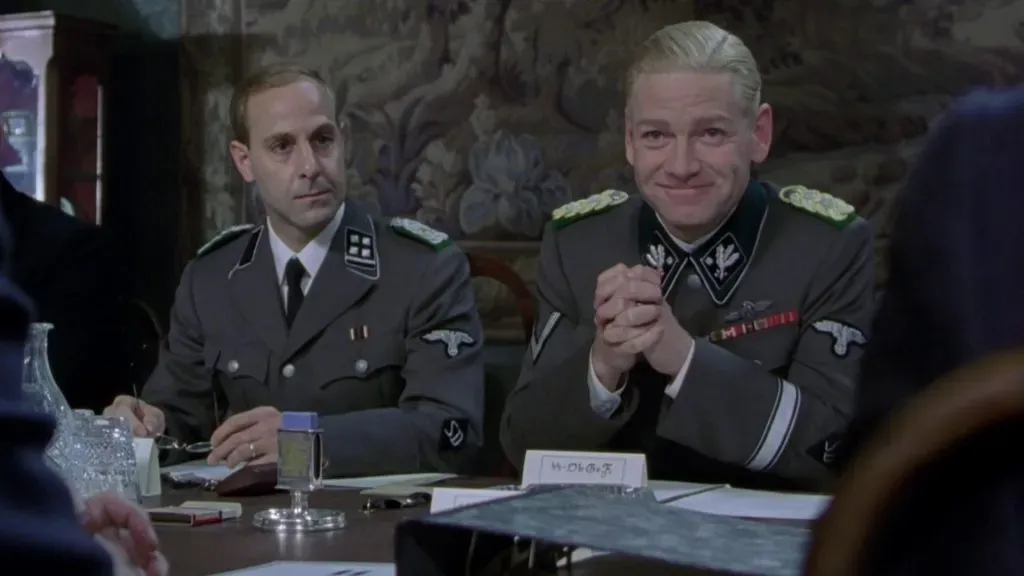
(Source: IMDb)
This HBO film, which meticulously dramatizes the Wannsee Conference, features Tucci in a chilling and terrifyingly bureaucratic role. As the chief organizer of the Holocaust, his Eichmann is a picture of detached, horrifying efficiency, discussing genocide with the calm precision of a business meeting. His Golden Globe-winning performance is arguably his darkest, showcasing his willingness to explore the most sinister corners of history.
Eric Dale in Margin Call (2011)
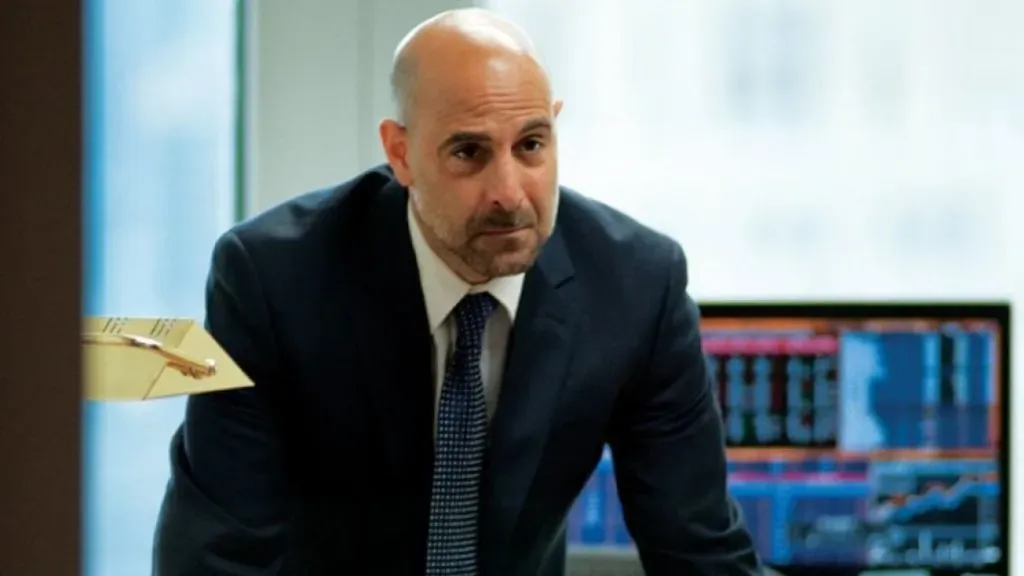
(Source: IMDb)
In this taut, dialogue-driven drama about the 2008 financial crisis, Tucci is the human casualty. As the head of risk management, whose firing triggers the film’s central catastrophe, his initial scene of stunned, quiet devastation sets the film’s anxious, ethical tone. His performance is a powerful, contained study of corporate paranoia and sudden ruin.
Link Peterson in Shall We Dance (2004)
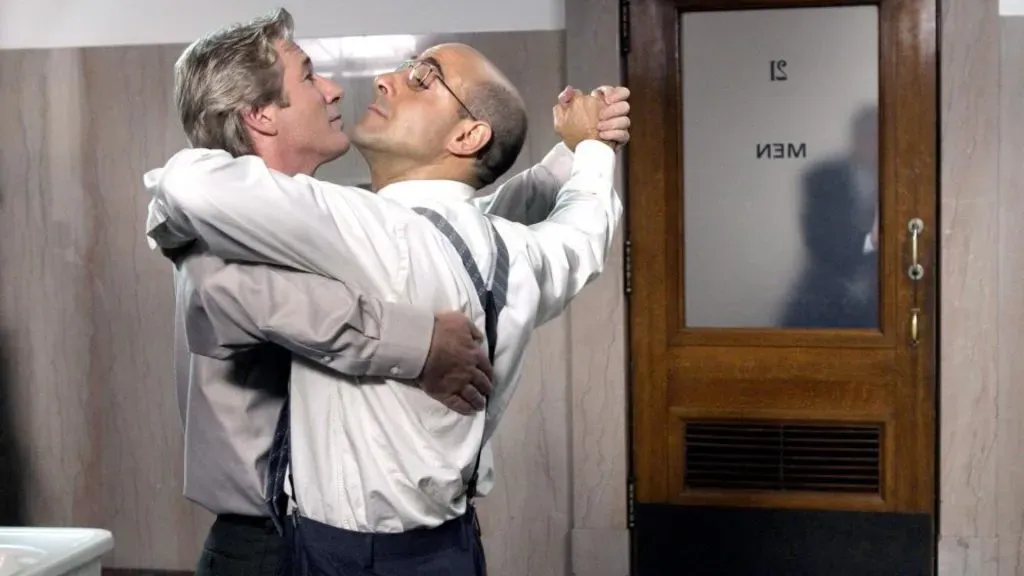
(Source: IMDb)
A delightfully uninhibited and surprising turn as a closet ballroom dancer. Tucci brings a necessary, hilarious physical comedy to the film, complete with a wild wig and fake teeth, only to reveal a character who finds genuine, emotional liberation on the dance floor. It’s a joyful, awkward, and ultimately freeing performance that perfectly encapsulates the actor’s surprising and endearing range.
